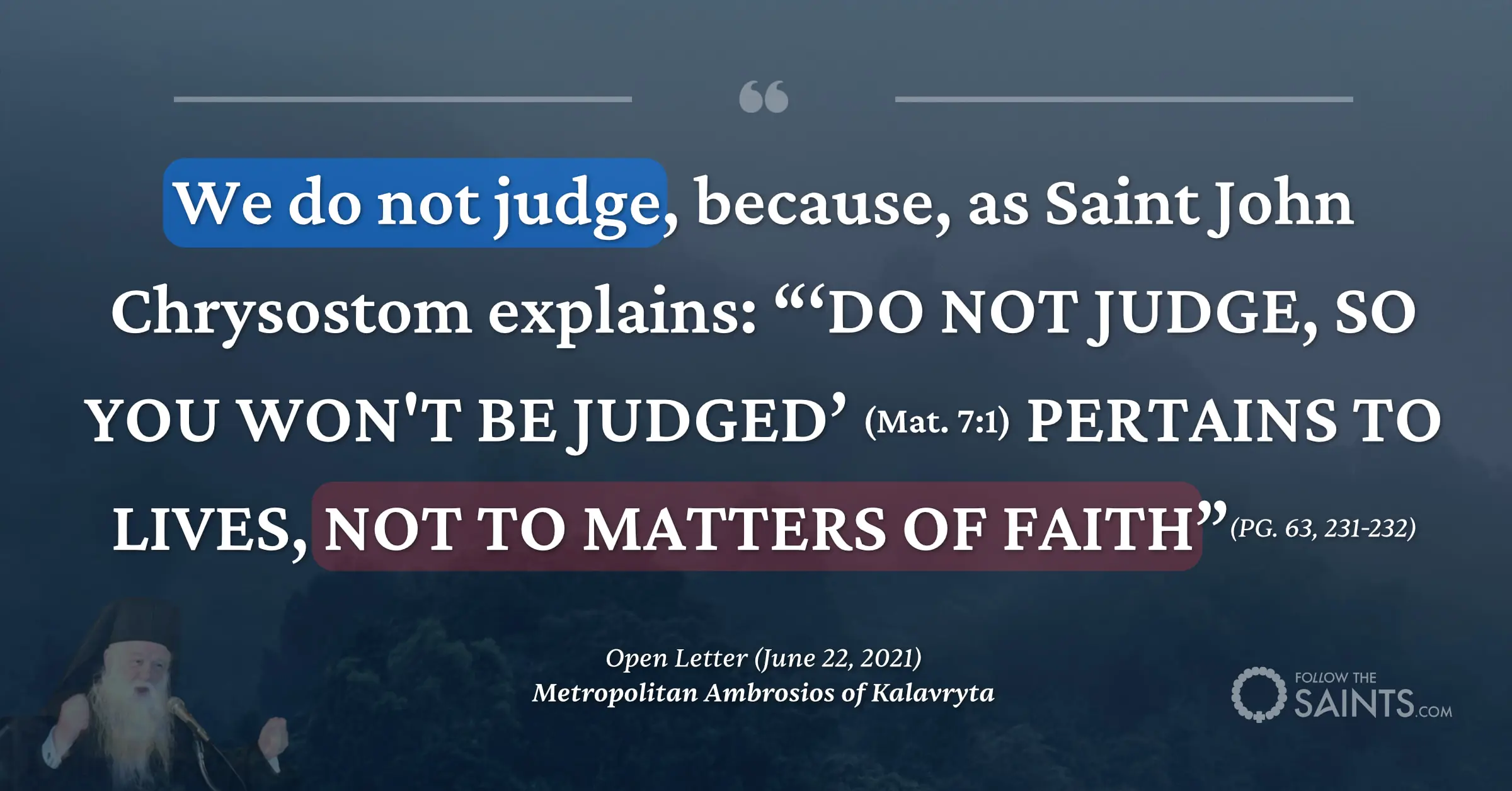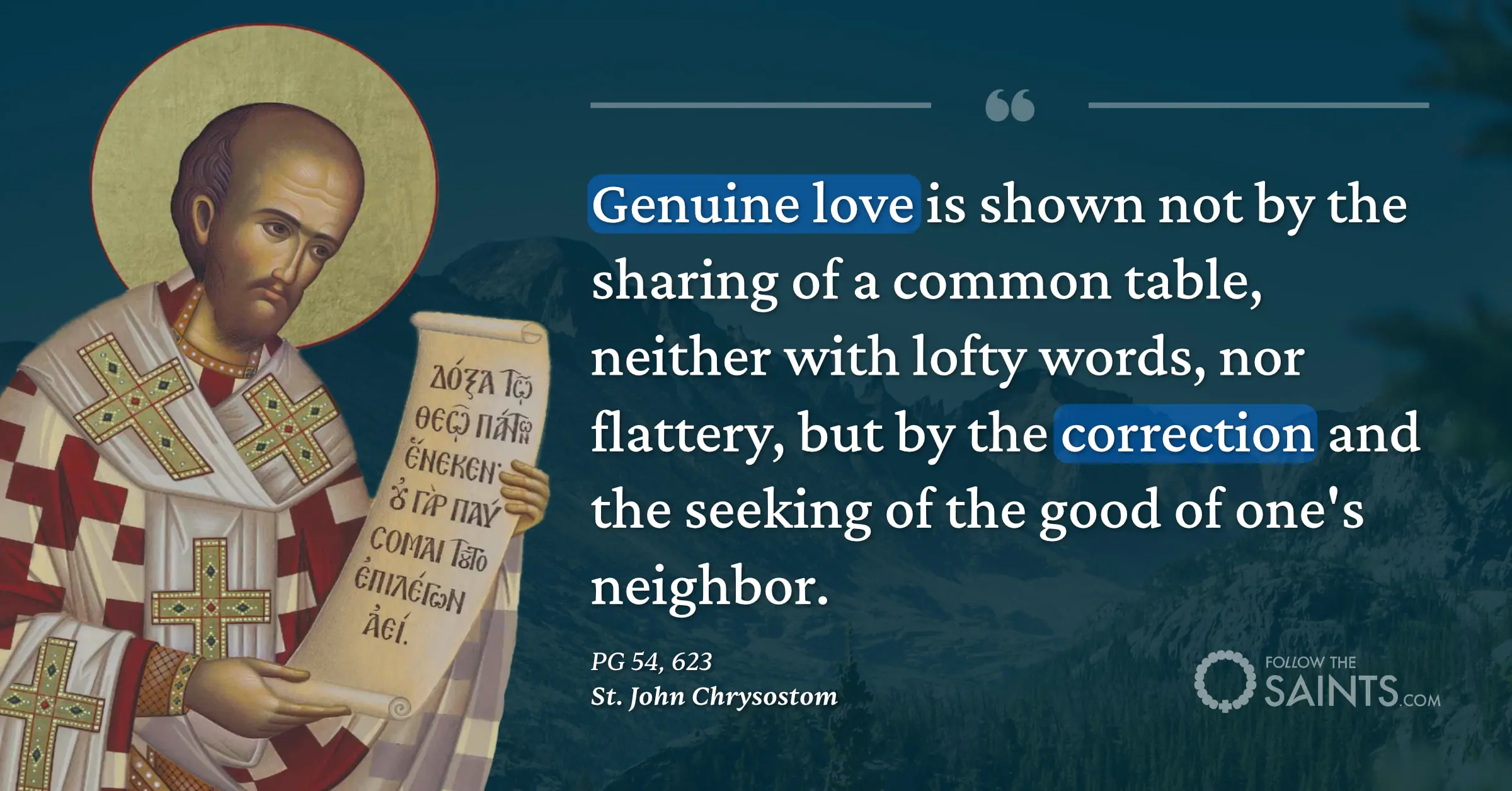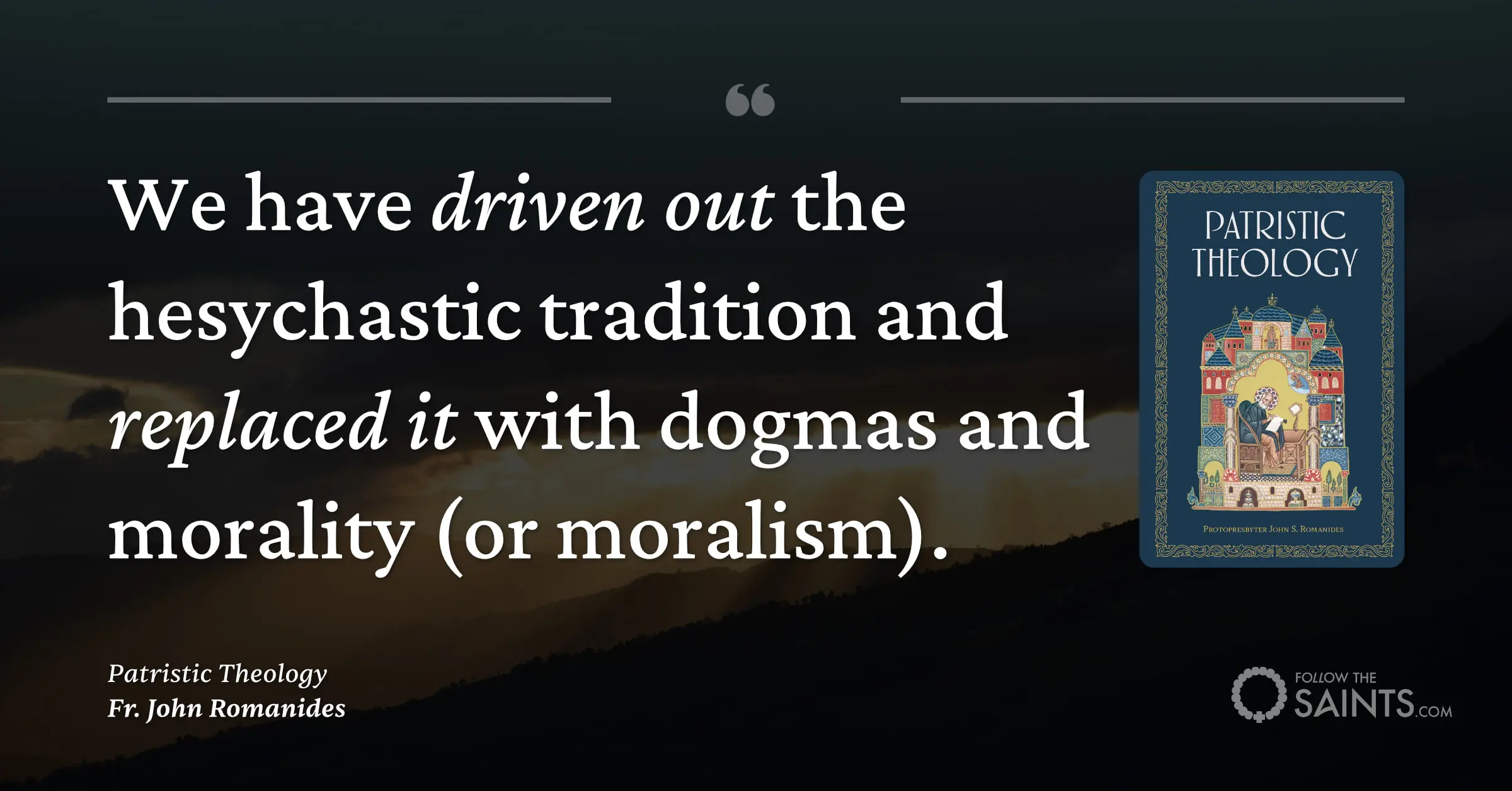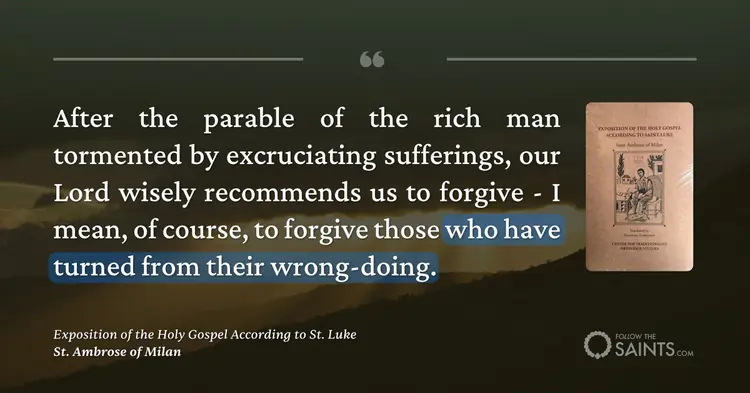On this page
Our saints often call us to forgive others. This is blessed and profitable, but often the boundaries of forgiveness are somewhat misunderstood in contemporary Orthodox circles. It’s not uncommon to see an unOrthodox, moralistic, secular understanding of forgiveness used in place of how the saints explained it.
When are we allowed to forgive? What is the difference between forgiveness and reconciliation? Is forgiveness simply being silent? And do we understand the difference between forgiveness and indifference? We’ll cover all these topics in the following text.
The following saints are cited: St. Paisios of Mt. Athos, St. Gregory the Theologian, St. Theophan the Recluse, Saint John Chrysostom, St. Ambrose of Milan, St. Basil the Great, and Archbishop Averky.
Forgiveness is not indifference
It’s important to first recognize that forgiveness is primarily regarding personal offenses and sins:
It is necessary to steadfastly remember that when the Gospel speaks of forgiveness of sins and offenses, it has in mind personal sins and personal offenses.
— Archbishop Averky, The Struggle for Virtue (Chapter 8: Resisting Evil)
There’s an impious sentiment that many hold: if we or others betray the faith, if we lay aside the canons, if we blaspheme the saints, if we trample upon tradition, and commit acts of evil against our faith, that this simply should be forgiven, not brought up, forgotten, ignored, in favor of focusing on our own sin.
The idea being presented is that there is forgiveness in matters of faith, doctrine, and dogma.
This attitude is often justified as love, forgiveness, and gentleness, when it is in fact more accurately described as indifference by our saints.
https://followthesaints.com/blog/indifference-evils-greatest-ally
Correction is not judgment
Many of the evils and faithlessness that have propagated in the church are due to our indifferent silence. This indifference is often excused because we believe that to speak, correct, admonish, and rebuke others in matters of faith, constitutes judgment of others and a lack of forgiveness of the sins of others.
Our saints don’t affirm this.
When we speak up against evil, when we correct evil, and someone says “just forgive and let it go”, they are showing a lack of the patristic understanding of forgiveness, and have replaced it with a moralistic one.


The Church doesn’t always forgive
It escapes the notice of many that there are people the church doesn’t even pray for. We as Orthodox, of course, pray for the dead. However, when is the last time you’ve heard any prayers for the apostle Judas? Or Arius? Or Barlaam? Or Satan?
Contemporary Orthodox Christians talk incessantly about forgiveness and unity, but lack awareness of how the church ritually anathematizes entire groups of people, both living and dead, every single year.
https://www.johnsanidopoulos.com/2010/02/synodicon-of-orthodoxy.html
Many of our shepherds have chosen in their infinite love to skip these services in their parishes. They do so, directly contradicting the saints, who insisted on these services. Why?
Many of the faithful are also not even aware of the existence of such services, never having attended one. Why?
It is obvious that love & forgiveness have turned into catch-all excuses as to why we don’t uphold the faith. We have traded in our Orthodoxy and replaced it with moralism.

All who call constantly for forgiveness need to start asking themselves if what they desire is simply indifference.
This moralism can be easily seen in the censure and reproach of the above Rite of Orthodoxy. This “loving” stance was corrected many times by our saints.
https://www.orthodox.net/articles/anathema-bp-theophan.html
At the present time, we have a proliferation of nihilists, spiritists and other pernicious clever ones who are carried away with the false teachers of the West. Do you really think that our holy Church would keep silence and not raise her voice to condemn and anathematize them, if their destructive teachings were something new?
— St. Theophan the Recluse
[…] would it really be love for man if she regarded the actions of such people with indifference and left them at liberty to destroy everyone else?
— St. Theophan the Recluse
Would a mother permit a snake to freely crawl up to and bite her little child, who does not understand the danger? If some immoral person were to gain access to your family and begin tempting your daughter, or your son – would you be able to regard their actions and their speeches with indifference?
— St. Theophan the Recluse
In essence, we, nor the church, forgive in matters of faith, unless their evils are renounced. We do not let these things go. We do not stay silent simply due to our own sense of our sinfulness. Why? For the same reason we anathematize.
And she [the church] is obliged to do this in self-preservation and to preserve her children from destruction.
— St. Theophan the Recluse
The danger of unity and peace
Another thing seen as a lack of forgiveness by many is anything that contradicts the axiom of peace and unity. And again, the saints (and scripture) correct this notion.
At the same time we must not value just any peace. For disagreement can appear pleasant, and some types of unity are very ruinous. One should love only a good peace which has a good goal and unites with God…when it is clear that what is at hand is impious or dishonest, then it is better to go into the fire, the sword […]
— St. Gregory the Theologian (Works of St. Gregory, Sermon 6, Vol. I, p. 192).
However, by no means is all peace pleasing to God, nor is it necessary to cherish all peace. The Holy Fathers, instructors in the spiritual life, say that there can be “glorious discord” as well as “most disastrous unanimity.” We should love only good peace, one that has a good purpose that unites with God. The Teacher of Love Himself, our Lord Jesus Christ, says that not all peace is pleasing to God and that it is not necessary to value all peace: Do not think that I came to bring peace on earth. I did not come to bring peace but a sword (Matt 10:34).
— Archbishop Averky, The Struggle for Virtue (Chapter 8: Resisting Evil)
Personal Forgiveness
After having established what cannot be forgiven, and establishing our common incorrect notions of forgiveness, we can then talk about the forgiveness we are called to show towards others personally.
Forgive the person who genuinely asks for your forgiveness, and each time he errs, forgive him with goodness, love him, and keep him close. Forgive the cunning person who supposedly asks your forgiveness in order to attain his own ends and constantly entangles you in his affairs, which also spiritually harm other people; forgive him seventy-seven times all at once, and thereafter, love him from a distance and pray for him.
— St. Paisios of Mt. Athos, Athonite Fathers and Athonite Matters (p. 220)
St. Paisios gives us the following framework of two types of forgiveness.
- Not holding onto a grudge. To have love for that person, and to pray for them.
- Reconciliation. To not only forgive that person but to choose to keep them close.
The Importance of Discernment
Our saints undoubtedly say that reconciliation is preferable. However, if we discern a lack of repentance, or if we discern someone will bring us and others to spiritual harm, we are COMMANDED by Christ and all our saints to not reconcile with them. We forgive, but we do not reconcile. We simply love them from afar, as St. Paisios says above.
Wherefore if thy hand or thy foot offend thee, cut them off, and cast them from thee: it is better for thee to enter into life halt or maimed, rather than having two hands or two feet to be cast into everlasting fire.
— Matthew 18:8 (KJV)
Commentary on Matthew 18:8
He is not saying this about human limbs. Far from it. This is said about friends, about relatives, whom we regard in the rank of necessary limbs. Jesus also said this earlier, and now he says it again. For nothing is so harmful as bad company. For what relationship cannot do, often friendship can do, both for harm and for benefit. So he orders us with great emphasis to cut off those who are harmful to us, implying that these are people who supply temptations to sin. Do you see how he checks the future damage from temptations? First he predicts that they will happen, so that no one should be lazy, but everyone should be awake expecting them. Then he predicts that the evils will be very great. For Jesus did not simply say, “Woe to the world for temptations to sin,” but showed their great damage. For when he says, “But woe to that man by whom temptation comes,” he indicates a great punishment. He does not only mention this, but he increases the fear by adding a comparison. And he supplies incontrovertible reasoning. If they remain your friends, you will not benefit them and you will destroy yourself. If you cut them off, at least you will preserve your own salvation. Then, not content with this, he shows us the way by which we can escape temptations to sin. What is that? The wicked, he says, even if they are very friendly to you, cut them off from your friendship. Therefore if someone’s friendship harms you, cut him off from you.
— Saint John Chrysostom, The Gospel of Matthew, Homily
https://catenabible.com/com/585b63219ac03ecd4b8e7043
This starts to paint a clear picture, given all of what we’ve covered so far. This constant push of unity, peace, love, and forgiveness (reconciliation) is in direct contrast to the teachings of the saints.
This is one of the fiercest battles we are fighting in the church: Orthodox Christianity is NOT moralism, nor is it indifferentism.
This is a citation from the Golden Mouth himself, St. John Chrysostom. This is a commandment of Christ. Yet how many, in knowledge or in ignorance, contradict this teaching?
There are some who at this point might add caution. They might say that all of this assumes we are discerning correctly when others are harmful and not repentant. Of course. But this is missing the key point, which is this:
The primacy of peace, unity, and forgiveness as conveyed by the moralist, as a rule of thumb, completely lacks this nuance. It lacks the nuance of separation, lack of reconciliation, and lack of unity, as a wholly good thing. It’s non-existent, ignored, and never taken into account by the moralist.
True reconciliation requires repentance
For true reconciliation to happen, it requires repentance, as scripture states.
“[3] Take heed to yourselves: If thy brother trespass against thee, rebuke him; and if he repent, forgive him. [4] And if he trespass against thee seven times in a day, and seven times in a day turn again to thee, saying, I repent; thou shalt forgive him.”
— Luke 17:3-4
This is another aspect that the moralist ignores. They harp on forgiveness, but what about rebuke? And notice that rebuke is called for, before forgiveness.
We are, of course, always called to not remember personal offenses and to have remembrance of evils (again, not in matters of faith). Reconciliation & unity is a separate matter.
The pride of those who call for forgiveness
Therefore, all the liberals of our time, […] themselves being quite evil and prideful by nature and completely unable to forgive personal offenses, nevertheless love to speak eloquently about Christian “forgiveness of all”, altogether incorrectly understanding such forgiveness.
— Archbishop Averky, The Struggle for Virtue (Chapter 8: Resisting Evil)
Many have a moralistic understanding of forgiveness, rather than a patristic one. As Archbishop Averky correctly points out, many of these people painfully lack self-examination. They lack the ability to forgive personal offenses but love to talk about forgiveness.
Should we listen to those who are emboldened in their moralism, who have little knowledge of the wisdom of the saints, and who have little respect for the authority of the saints, to dictate what forgiveness is, to us?
Archbishop Averky on Resisting Evil
Again, forgiveness is only in matters of personal offense: Many Orthodox Christians tout forgiveness towards unrepentant evils, especially regarding faith.
A Christian is obligated to forgive personal offenses.
— Archbishop Averky, The Struggle for Virtue (Chapter 8: Resisting Evil)
[…] it would seem to follow that every evil person can freely do all that he wants—cheat, rob, steal, rape—and we should calmly accept this and let such a person do all that he sees fit.
— Archbishop Averky, The Struggle for Virtue (Chapter 8: Resisting Evil)
It is true that the primary and fundamental task of a Christian is to battle with evil in his own soul and to suppress all evil impulses and yearnings therein. However, at the same time, we should battle with evil with all possible means when it manifests itself.
— Archbishop Averky, The Struggle for Virtue (Chapter 8: Resisting Evil)
When a gentle word of persuasion has no effect, when people are so steeped in evil that they do not yield to any admonishment and continue doing evil, a Christian cannot and should not take refuge in this teaching of the forgiveness of all.
— Archbishop Averky, The Struggle for Virtue (Chapter 8: Resisting Evil)
Yes, our saints tell us to focus on our own sins. They are really communicating the following:
- They are not saying to ignore evil, but simply to “prioritize” our own evil.
- They are talking to people who have not properly begun to focus on themselves. This is really about people who have not attained to their own purification & illumination.
We must reprove others
“If your brother sins against you, reprove him” (Lk 17:3).
After the parable of the rich man tormented by excruciating sufferings, our Lord wisely recommends us to forgive - I mean, of course, to forgive those who have turned from their wrong-doing. This He does so that no one need feel discouraged, no one need despair of his conversion from sin. Our Lord expresses this with much kindness and moderation, balancing all that He says so that pardon does not become difficult, nor is forgiveness given too lightly. He wants no one to be put off by a harsh reprimand, nor - on the other hand - to be encouraged, by a casual sort of attitude on our part, to continue sinning.
— St. Ambrose of Milan, Commentary of St. Ambrose on the Gospel of Luke
As God forgives, I forgive. What does that mean?
God forgives us when we repent. We are reconciled to Him when we repent. Likewise, true forgiveness (reconciliation) requires repentance. We are NOT to grant that forgiveness lightly. We also must reprove people. We should not reprimand harshly (at least at first), but we should certainly not be casual.
Yes, gentleness is blessed, however when people are brazen and unrepentant, and are in the ranks of the wicked, we are no longer called to gentleness.
When a gentle word of persuasion has no effect, when people are so steeped in evil that they do not yield to any admonishment and continue doing evil, a Christian cannot and should not take refuge in this teaching of the forgiveness of all.
— Archbishop Averky, The Struggle for Virtue (Chapter 8: Resisting Evil)
Benevolence to such persons is like that mistaken kindness of Heli which he was accused of showing his sons, contrary to the good pleasure of God (1 Sam. 3.13)
A feigned kindness to the wicked is a betrayal of the truth, an act of treachery to the community, and a means of habituating oneself to indifference to evil, since that saying is not fulfilled: 'Why have ye not rather mourned that he might be taken away from you that hath done this deed (1 Cor. 5.2). On the other hand, the saying which follows necessarily comes to pass: 'A little leaven corrupteth the whole lump (1 Cor. 5.6.) ‘Them that sin, reprove before all,’ says the Apostle, and he immediately adds the reason, saying: 'that the rest also may have fear. (1 Timothy 5:20)
— St. Basil the Great, Ascetical Works, The Long Rules, Question 28
Again, this shows us that we must reprove others. There are plenty who are well enmeshed in evil and benevolence isn’t always the proper way. To then say that such a reprove is the fruit of a lack of “forgiveness” would then be an egregious misinterpretation, and would contradict the words of our great saints and elders here.
Conclusion
Many Orthodox lack a fundamental understanding of what forgiveness is, and what our saints say about it. They have a surface level understanding that forgiveness is good, and of course it is. Of course we should forgive. But not holding onto remembrance of evils done against us is very different from reconciliation, which is not always advised by our saints. Many of our saints cut off and distanced themselves from those it wasn’t proper to be around.
We are commanded to cut ourselves off from others when it is proper to do so. Peace and unity can be very harmful. Discord can be glorious. We must watch for the modern false equation of forgiveness and indifference towards evils, especially in matters of faith. Further, we should watch for forgiveness being used as a blunt tool in our times to silence those who would speak to defend our Holy faith, our traditions, our canons, and the teachings of the saints.
Through the prayers of St. Paisios of Mt. Athos, St. Gregory the Theologian, St. Theophan the Recluse, Saint John Chrysostom, St. Ambrose of Milan, St. Basil the Great, and Archbishop Averky, O Lord Jesus Christ our God, have mercy on us and save us. Amen.
